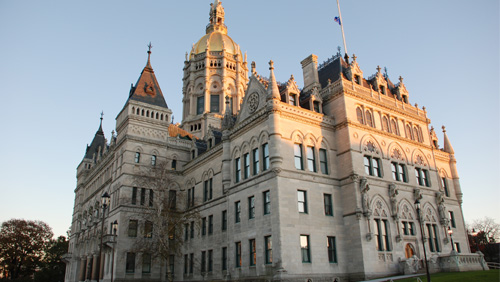A bill seeking to legalize sports betting in Connecticut—provided the U.S. Supreme Court lifts the federal ban—has been knocked out cold in the state capitol, The Hartford-Courant reported.
 HB 5307, which sought to permit and regulate sports wagering in the state, was one of the nine major bills that died when the Connecticut 2018 legislative session ended on May 9, despite garnering overwhelming support from gambling operators and state regulators.
HB 5307, which sought to permit and regulate sports wagering in the state, was one of the nine major bills that died when the Connecticut 2018 legislative session ended on May 9, despite garnering overwhelming support from gambling operators and state regulators.
The betting bill showed promise when it was introduced in March along with other measures seeking to legalize fantasy sports, casino expansion and online gambling.
Lawmakers had previously expressed their support of the bill since they believe that Connecticut must put “everything in place” in the event that the Supreme Court decides to lift the federal betting ban. Proponents estimated that Connecticut could collect $6.5 million in the first year of legalized state wagering before growing to $9.1 million in later years.
The initiative gained momentum after gaining the support of both the Connecticut Lottery Corp. (CT Lottery) and the Mashantucket Pequot Tribe, operator of the state’s Foxwoods Resort Casino. But HB5307 was never called in either the House or Senate.
There are lots of reasons why HB530 failed, including the issue of who will operate sports wagering. Tribal casino operators Mashantucket Pequot and Mohegan Sun insisted that they have an exclusive right over betting as provided under the tribes’ current agreement with Connecticut.
It didn’t help that Attorney General George Jepsen issued a legal opinion cautioning lawmakers to “carefully consider a number of factors before legalizing sports betting.” Lawmakers rebutted that they never contemplated betting when they signed the compact with the tribes.
Aside from that, the lawmakers had to juggle 14 major bills—including making budget adjustments—during the short legislative session. One of these bills was the Bridgeport casino bill, which was also shelved until next year.




